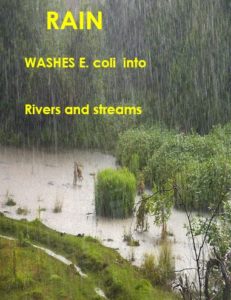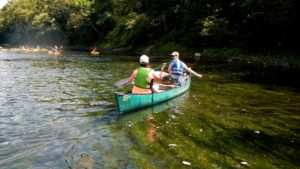Virginia Department of Health
Prevent illness and injury when swimming in natural waters by following these steps:
 Avoid swimming in natural waters for a few days after a heavy rain event.
Avoid swimming in natural waters for a few days after a heavy rain event.- Avoid swallowing water when swimming.
- Avoid getting water shot up your nose when swimming, especially in warm shallow water.
- Avoid swimming or wading in with open wounds or cuts.
- Look for posted signs near the swimming area.
- Don’t swim in areas where there are dead fish present.
- Don’t swim if you are ill.
- Shower with soap and clean water after swimming.
- Avoid swimming in muddy water of lakes, ponds, and rivers.
- Avoid swimming in unfamiliar ponds, streams, creeks, ditches, and canals.
- Be aware of local weather conditions prior to recreational activities and watch for dangerous waves and signs of rip currents.
- More VDH information information click here
BACTERIA HOT SPOTS caution needed
 Where polluted tributaries join the River and just down stream on the tributary side.
Where polluted tributaries join the River and just down stream on the tributary side.- A list of tributaries that have high Summer time E. coli is
- After recent rains or a local thunder storm. See recent Valley rain click here.
algae issues
 Sometimes especially after periods of low flow and warm weather algae can be abundant. Massive filamentous algae can interfere with fishing and make swimming unpleasant. Boating and tubing help avoid some of the algae issues. South Fork July 2017
Sometimes especially after periods of low flow and warm weather algae can be abundant. Massive filamentous algae can interfere with fishing and make swimming unpleasant. Boating and tubing help avoid some of the algae issues. South Fork July 2017